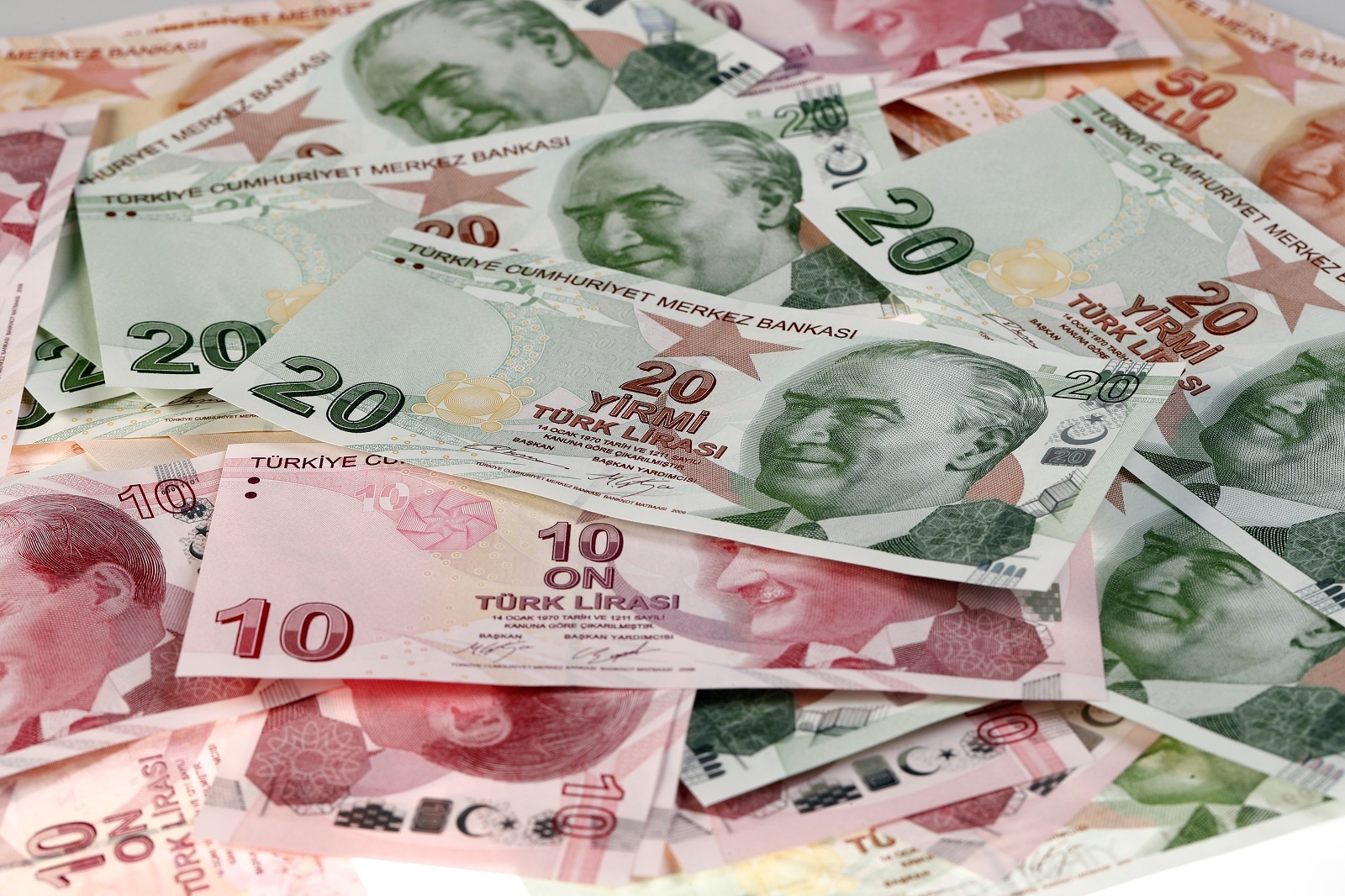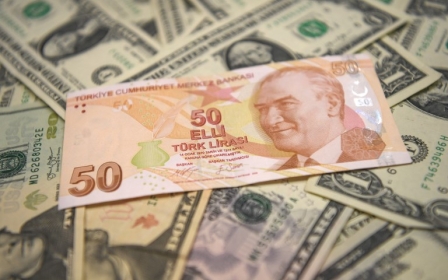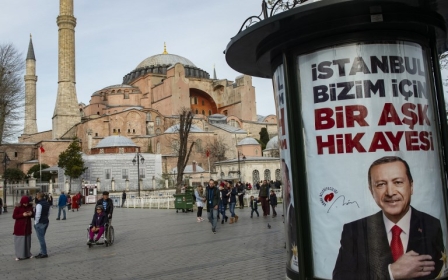Turkey rides currency rollercoaster as government targets speculators

Turkish markets have been on a rollercoaster since last week with the lira weakening then rebounding again and again against the US dollar and the Turkish Stock Exchange posting huge loses that wiped out all profits posted in 2018.
On Thursday, the lira plunged again, losing up to four percent against the dollar.
So, what’s going on? Analysts say everything started with Central Bank foreign currency reserve data posted on Friday that appeared to show roughly $3 billion was missing from its accounts in first two weeks of March.
This led to questions about whether the Central Bank was using backdoor methods to solidify the lira, such as by quietly selling dollars to markets through public banks. The immediate effect was that the lira lost about five percent of its value in Asian markets last Friday.
New MEE newsletter: Jerusalem Dispatch
Sign up to get the latest insights and analysis on Israel-Palestine, alongside Turkey Unpacked and other MEE newsletters
Regulators investigate short-selling
Over the weekend, JP Morgan, the US investment bank, advised its clients to short sell lira due to political and economic risks before the elections, triggering two formal investigations by Turkish regulators about accusations of "speculation".
But with investors and Turkish economists waiting for a huge drop in the value of the lira, the unexpected happened and the currency rebounded for almost two days until Thursday.
Why? Because, according to the reports, Turkish banks, under pressure from the government, stopped providing liquidity to foreign fund managers in London who wanted to bet against the lira.
As a result, the cost of borrowing lira overnight on the offshore swap market increased more than 1,000 percent on Wednesday, as “trapped” investors who wanted to close their trades were forced to sell assets on the Turkish Stock Exchange. The yield on two-year Turkish bonds also soared above 20 percent on the same day.
However, fresh data on Thursday showed once again that the Central Bank’s foreign currency reserves continued to drop in the first three weeks of March, with roughly $10 billion disappearing.
In order to boost its reverse, the bank increased swap limits for banks on Thursday and suspended auctions at the one-week repo, a discounted rate at which central banks buy back government securities from commercial banks, that strengthened the dollar against the lira by more than four percent.
Turkey 'in a drift'
Governor Murat Cetinkaya said the bank’s total reserves increased by $4.3 billion in the last week of March, and net reserves rose $2.4 billion to $28.6 billion in the same time.
Ugur Gurses, a respected Turkish economist, says Turkish government policies to stabilise the lira before crucial local elections on Sunday have undermined the convertibility of the currency in the eyes of investors who will likely think twice before investing in Turkey in the future.
“As a result, the steps to undo the open economy, especially with backdoor methods, placed Turkey in a drift that could take it to 1989,” he said, referring to the year when Turkey started to implement a free currency exchange regime.
'Everyone knows that the government is using every tool to stabilise lira. And this is hardly an unorthodox method'
- Taha Meli Arvas, economist
However other analysts say the Turkish government’s efforts to stop manipulative trading is an acceptable way to prevent harm to the Turkish economy before the elections, as citizens would be the ones who would pay the cost.
Taha Meli Arvas, another Turkish economist, told Middle East Eye that the decline in the Central Bank’s reserves was hardly a good reason to short sell the lira.
“Everyone knows that the government is using every tool to stabilise lira. And this is hardly an unorthodox method.
"An International Monetary Fund (IMF) report says limiting offshore use of currencies could be effective if they were comprehensive and effectively enforced. The Turkish government is trying to buy time to help the economy to recover. This is why the temporary hit to investor confidence may well be worth it," he said.
Turkish President Recep Tayyip Erdogan, on the other hand, has different opinions on the subject.
"[Fluctuation in foreign currency rates] are the West's, primarily America's operations to corner Turkey. All of them are imposing their agenda as Turkey goes to polls. We have to discipline the speculators," he said in a live broadcast on Thursday.
Middle East Eye delivers independent and unrivalled coverage and analysis of the Middle East, North Africa and beyond. To learn more about republishing this content and the associated fees, please fill out this form. More about MEE can be found here.





